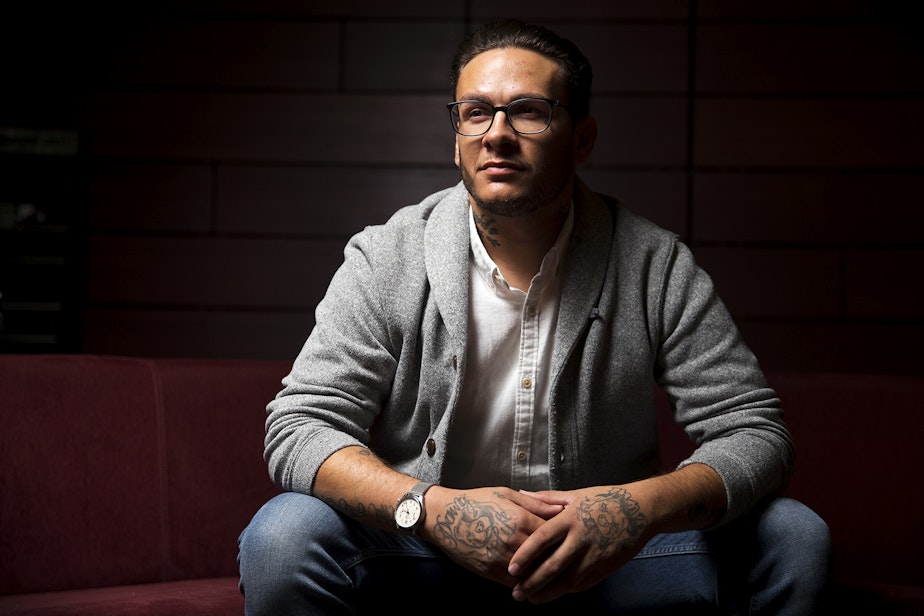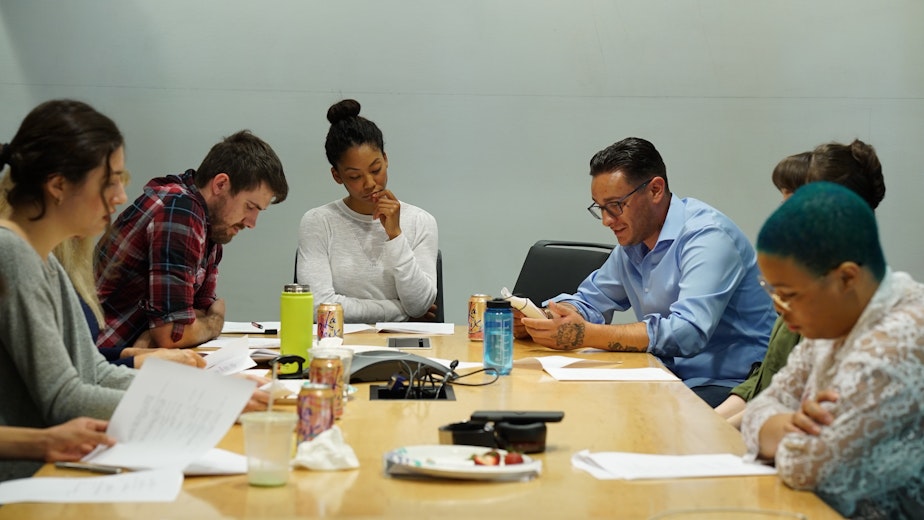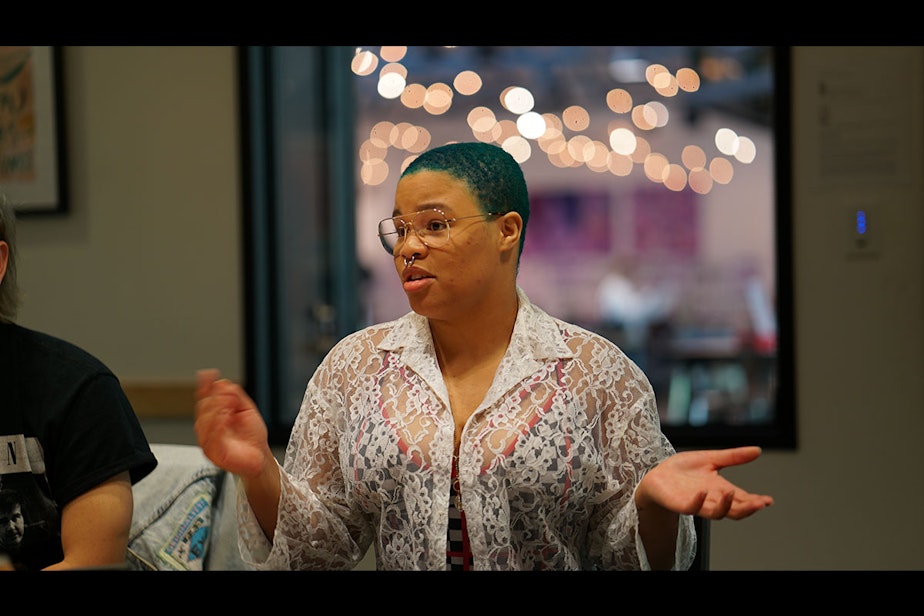He's turning his past street life into a screenplay

The first thing you notice about Raymond Power is his smile, wide and welcoming.
The second thing you see are the tattoos that wrap around his forearms, creep over the collar of his button-down shirt, and drip out of the corner of an eye down to his cheekbone.
“The tattoos are a big barrier,” Power says about his search for employment. “I still get followed in stores to this day.”
Power’s tattoos are a visible reminder of his rough past. He’s done hard drugs and a stint in prison; led a gang and lived on the streets. With grit and a little mentorship, Power has transcended that past, and now it’s part of his life’s work to show other people they can do the same thing.
Power, now 33 years old, grew up in a housing project with his single mother and a younger sister. He says, simply, “home life wasn’t very good.”
“My mom ended up with cancer, addicted to drugs,” Power explains. “She had a lot of boyfriends; there was a lot of abuse.” Often there wasn’t even money to buy food.
Power hid the problems from the social workers dispatched by Child Protective Services. Although the two children were enrolled in school, Power admits he often cut classes.
“It was hard to be in school,” he says. “You’re hungry, you’re going through trauma at home.”
Sponsored
He sees himself as an exemplar of the school to prison pipeline. By his mid-teens, Power had hooked up with the local gang, an offshoot of the Bloods. They were the father figures he was missing, providing attention, food, and the means to bring in some cash: dealing drugs.
“It was scary,” Power says. “I always had to put on an act. In a gang you’re terrified, but you gotta act hard. You gotta do what you gotta do, even if you’re terrified.”
It’s been more than a decade since Power’s gang days, his addiction to opioids, prescribed after a bullet ripped through his mouth; since the year he spent at the Washington Corrections Center in Shelton, punishment for attacking a man who was sexually assaulting his kid sister; since his on-again, off-again years spent couch surfing, sleeping in his car, taking shelter wherever he found it.

Power speaks about his past frequently, to large audiences at motivational seminars and to friends from his gang past.
Sponsored
These days, he’s also infusing his experiences into a screenplay called “Give Me Shelter,” a project of Seattle’s non-profit Film School. Film School executive director and project producer Jonathan Keasey met Power when he attended a writing workshop there.
Like so many people in the region, Keasey had been searching for a way to address the region’s growing homelessness crisis. He was struck particularly by the number of youth he saw on the streets.
According to the most recent King County study, more than 1,000 unaccompanied young people are experiencing homelessness here, and development has forced closure of at least one shelter targeting this demographic.
“I really wanted to find an optimistic, non-polarizing way to look at the issue,” says Keasey. “I’m a creative type, so we wanted to do something creative.”
Keasey and his project partner, director Josh Taft, envisioned a television series, something akin to David Simon’s “The Wire,” set in Baltimore.
Sponsored
At first, they teamed up with other Hollywood veterans to write a pilot script. But the men realized they need to work with people who knew life on the streets first-hand. They turned to Power, who is now writing the screenplay in partnership with professional writer Jeremy Dodd.
“It’s become a little more Raymond as time goes on,” Power says. “I always bring my experiences, what I’ve lived.”
He’s also bringing his acting chops to the table, portraying a fictionalized version of himself in the pilot. Power joins a cast of professional actors as well as others like himself, people who have experienced homelessness firsthand.

Everyone involved in “Give Me Shelter” wants the series to produce authentic, three-dimensional portraits, but they’re particularly interested in showing a general audience that being without a home is not a terminal condition, that people find ways to cope and transcend. The project’s tag-line is “combatting homelessness with hope and a script.”
Sponsored
Taft, who’s directed a variety of genres, sees this as the most important project of his career to date.
“I’ve been motivated by the simple fact that I can’t unsee what I’ve seen,” Taft says. “I’m putting it all on the table.”
For Power, the project is a stepping stone in the career he’s trying to build, as an actor or screenwriter or producer, but Power also sees “Give Me Shelter” as a beacon to people who recognize themselves in his story.
“I’m just a guy that took the chance,” Power says. “I seen hope. Anything is possible, no matter who you are.”
Producers expect to finish shooting a short pilot episode this summer; the ultimate goal: full funding for a series shot and edited in Seattle.




